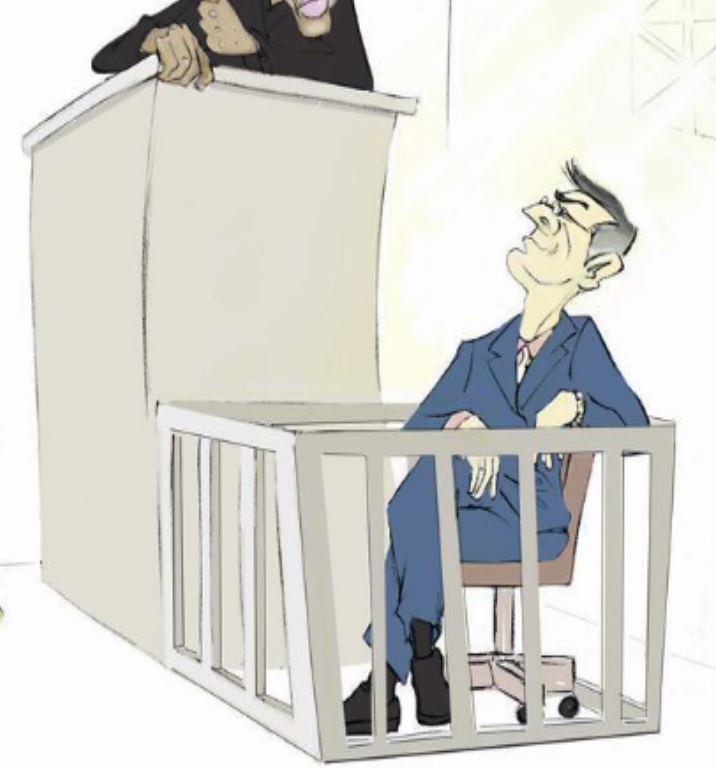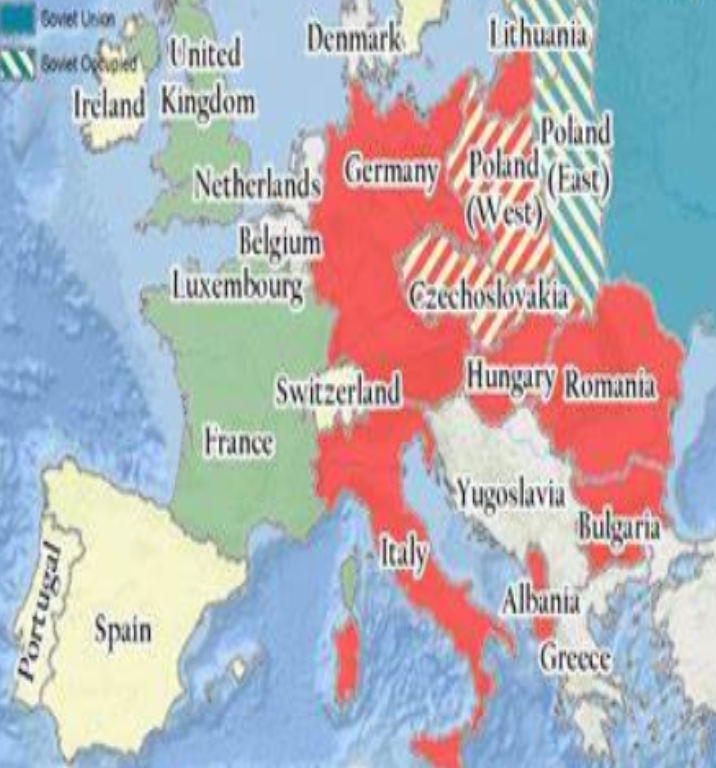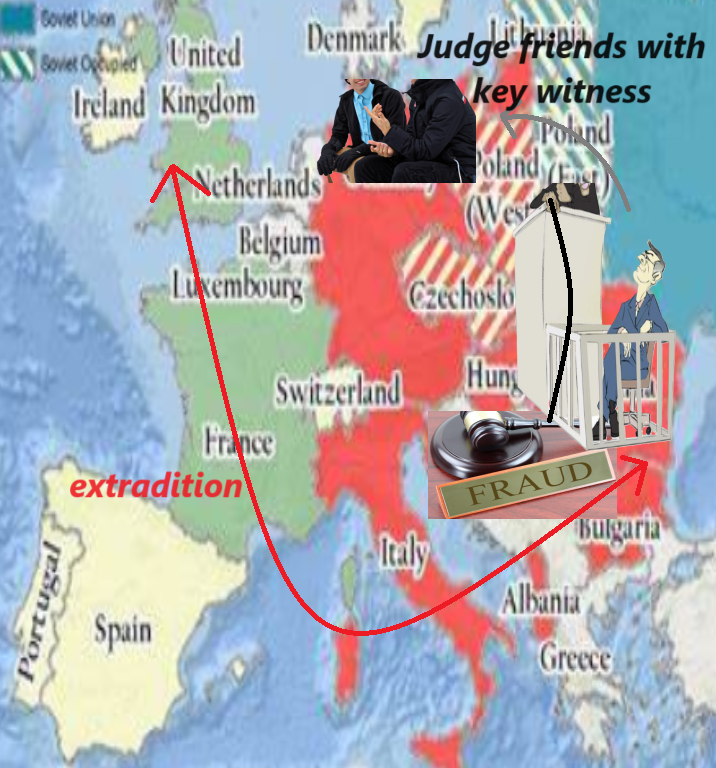Popoviciu v Curtea De Apel Bucharest (Romania) (Rev1) [2023] UKSC 39 (8 November 2023)
Citation: Popoviciu v Curtea De Apel Bucharest (Romania) (Rev1) [2023] UKSC 39 (8 November 2023)
Rule of thumb: Stare-decisis: If a Judge is friends with a key witness for one of the parties in the case, is this a conflict of interest? Yes, this is a potential conflict of interest. Also, if the Judge does not recuse themselves, parties must have the right to challenge this or else it is a violation of the right to a remedy.
Background facts: The facts of this case were that Mr Popoviciu was a Romanian citizen living in Great Britain. A warrant was issued for the arrest of Mr Popoviciu over a fraud he was alleged to have been found guilty of committing thereby requiring him to serve a prison sentence. The Judge who found Popoviciu guilty & sentenced him was found to have links to one of the prosecution’s witnesses – being good friends with a prosecution witness.




Parties argued: The Romanian Court argued that whether or not this constituted a conflict of interest was for the Courts in Romania to decide, so the warrant should be upheld & complied with.
Popoviciu argued that the Judgment, sentence & warrant was invalid as it had not been issued by a valid in accordance with Article 6 ECHR. Popoviciu further argued that in Romania parties to proceedings are not allowed to argue that the Judge was biased with a conflict of interest, and there was no standing & jurisdiction for him to make these arguments if he returned, so to send him there would be a violation of his Articles 5 & 6 Rights to a remedy and a fair trial.
Court held: The Court upheld the arguments of Popoviciu. Where a warrant or any Judgment has been issued by a Court which turns out not to have been impartial & acting in accordance with human rights, the UK Courts cannot enforce this Judgment. The Court affirmed that if a Judge is a good friend of a prosecution witness – out wining & dining as well as sharing messages etc, it does raise an arguable case for a conflict of interest which Popoviciu had the right to make, and which would result in his Article 5 right to a remedy being violated if he was not able to argue this plea in law. Popoviciu did not have to return to Romania. It was affirmed that this case had to be considered in greater detail.

Ratio-decidendi:
'1. The Court of Appeal of Bucharest, First Criminal Section, Romania (“the appellant”) sought the extradition of Mr Gabriel Popoviciu (“the respondent”) pursuant to a European Arrest Warrant dated 3 August 2017.
'2. An extradition hearing took place before District Judge Zani at the Westminster Magistrates’ Court in October 2018 and was completed in April 2019. On 12 July 2019 District Judge Zani ordered the respondent’s return to Romania.
'3. The respondent appealed to the High Court against the order for his extradition. On 11 June 2021 the High Court (Holroyde LJ and Jay J) allowed the respondent’s appeal pursuant to section 27(1)(a) of the Extradition Act 2003 (‘the 2003 Act’), discharged the respondent pursuant to section 27(5)(a) and quashed the order for the respondent’s extradition to Romania pursuant to section 27(5)(b): [2021] EWHC 1584 (Admin)…
'6. The respondent was accused in Romania of conspiring with Alecu Ioan Nicolae (‘Alecu’) to transfer a plot of land known as Baneasa Farm from state ownership to a private company, SC Log Trans SA, in which he had an interest. Baneasa Farm was occupied by the University of Agricultural Sciences and Veterinary Medicine, Bucharest. Alecu was the Rector of that university. It was alleged that the respondent and Alecu had made false promises to the Senate of the University to obtain the transfer of the land in 2003-2004, with a view to building apartments on it…
'12. In his judgment Judge Tudoran set out, briefly, his conclusions about the individual defendants. He found the respondent to have knowingly and intentionally broken the law and to have been the person who initiated the crimes.
'13. The respondent was sentenced to a total term of 9 years' imprisonment…
'24. Beginning in September 2019, however, the respondent applied to adduce fresh evidence concerning Judge Tudoran and to make fresh arguments regarding his lack of independence.
'25. On 6 June 2019, Judge Tudoran had requested judicial retirement with effect from 15 October 2019. In July 2019, the Superior Council of Magistracy recommended to the President of Romania that the request should be granted. From about August 2019, articles appeared in the Romanian press making references to Judge Tudoran's unexplained wealth and allegations concerning his son’s activities. On 22 August 2019, Judge Tudoran asked to resign, a step which would result in his forfeiting certain pension rights to which he would have been entitled if his retirement had taken place as planned in October that year. His resignation was accepted by the President on 19 September 2019…
'86. On behalf of the respondent, Mr Fitzgerald submitted that if the appeal succeeds on the ground that the High Court applied the wrong test, this matter should be remitted to the High Court to enable it to consider what is described as “powerful new and additional evidence of Judge Tudoran’s corruption and improper links with Becali that were not before the High Court”…
'95. As we have seen, in his judgment in the High Court Holroyde LJ referred (at para 163) to this matter and observed that it is a surprising aspect of the Romanian criminal justice system if the late discovery of an undisclosed friendly relationship between a trial judge and an important prosecution witness would not constitute a reason to review a final decision….
'107. We are here concerned with the availability of an effective remedy in Romania. The availability of an application to the Strasbourg court does not meet the requirements of article 5. Contrary to the submission on behalf of the appellant, the experts are not agreed that there is an effective remedy in Romania pursuant to article 20 of the Constitution. Furthermore, contrary to the submission on behalf of the appellant, the present proceedings before the courts of England and Wales cannot be considered as relieving Romania of the obligation to provide an effective remedy. The review which has taken place here is within the limited jurisdiction of proceedings on a European Arrest Warrant. The respondent maintains that he has encountered difficulty in obtaining information and evidence. The Romanian authorities would be obliged to co-operate with any article 5 and 6 compliant proceedings in Romania.
'108. Having regard to the findings of the High Court in these proceedings, I am persuaded that the point is arguable. Notwithstanding the manner and the late stage in the proceedings at which the issue of the availability of an effective remedy in Romania has arisen, I consider that, in order to comply with the Soering principle, it would be necessary to remit this specific issue to the High Court with a direction that it consider the availability to the respondent, if returned to Romania, of an effective legal procedure which would enable him to make his case concerning the fairness of the Romanian proceedings and the legality of his detention. Had the appellant not withdrawn the European Arrest Warrant, I would, therefore, have remitted this issue to the High Court for its consideration'.
Lord Lloyd-Jones
Warning: This is not professional legal advice. This is not professional legal education advice. Please obtain professional guidance before embarking on any legal course of action. This is just an interpretation of a Judgment by persons of legal insight & varying levels of legal specialism, experience & expertise. Please read the Judgment yourself and form your own interpretation of it with professional assistance.

